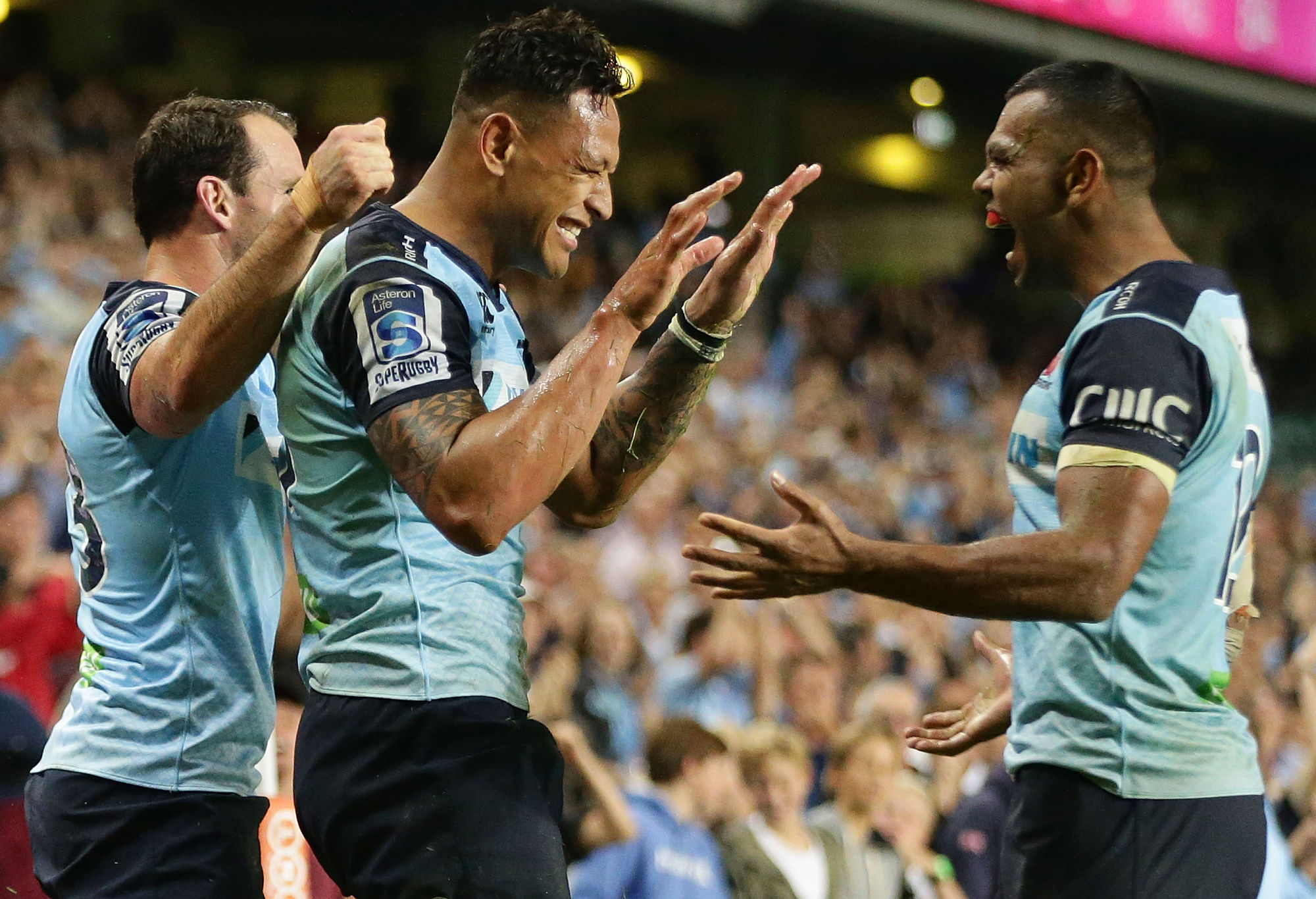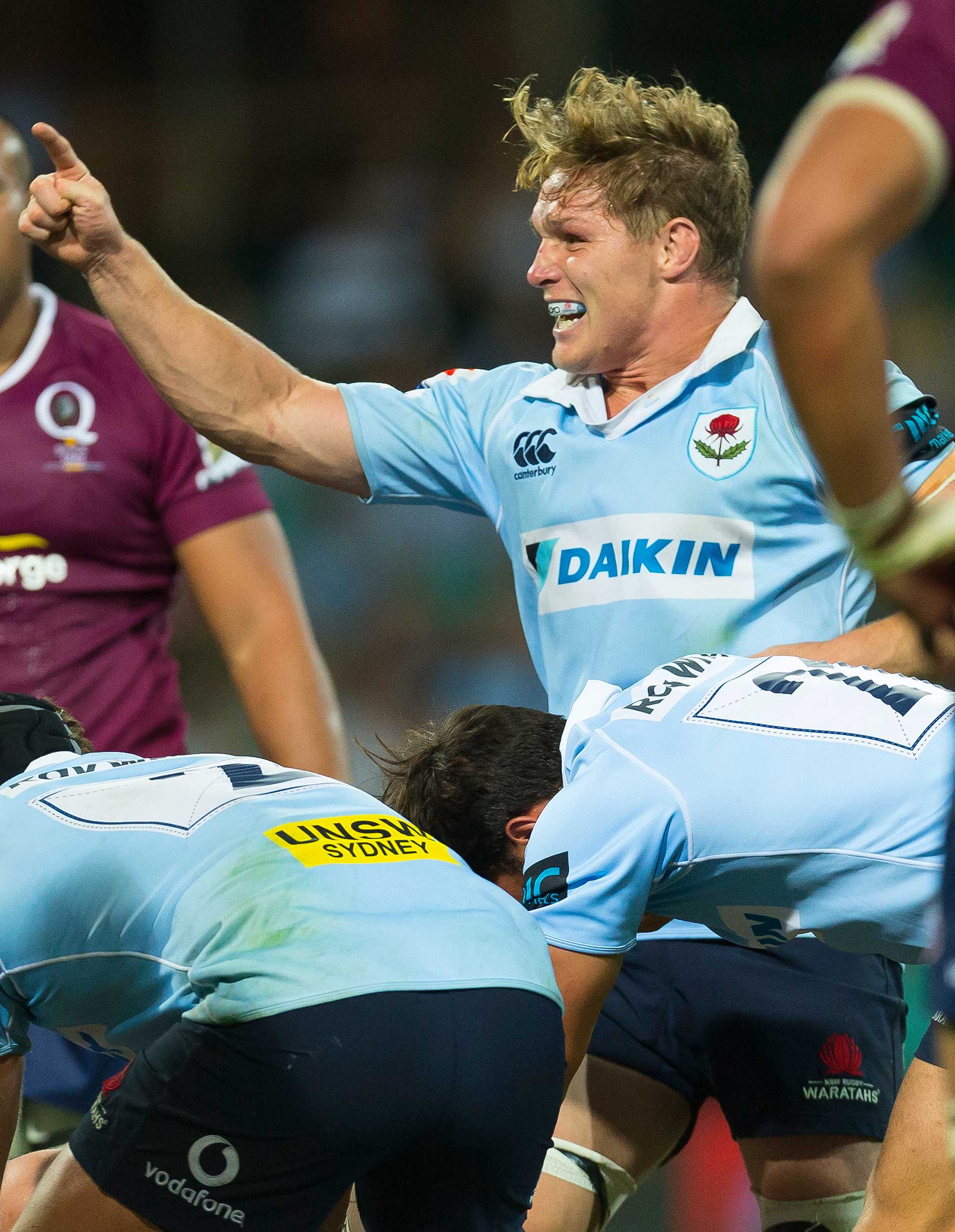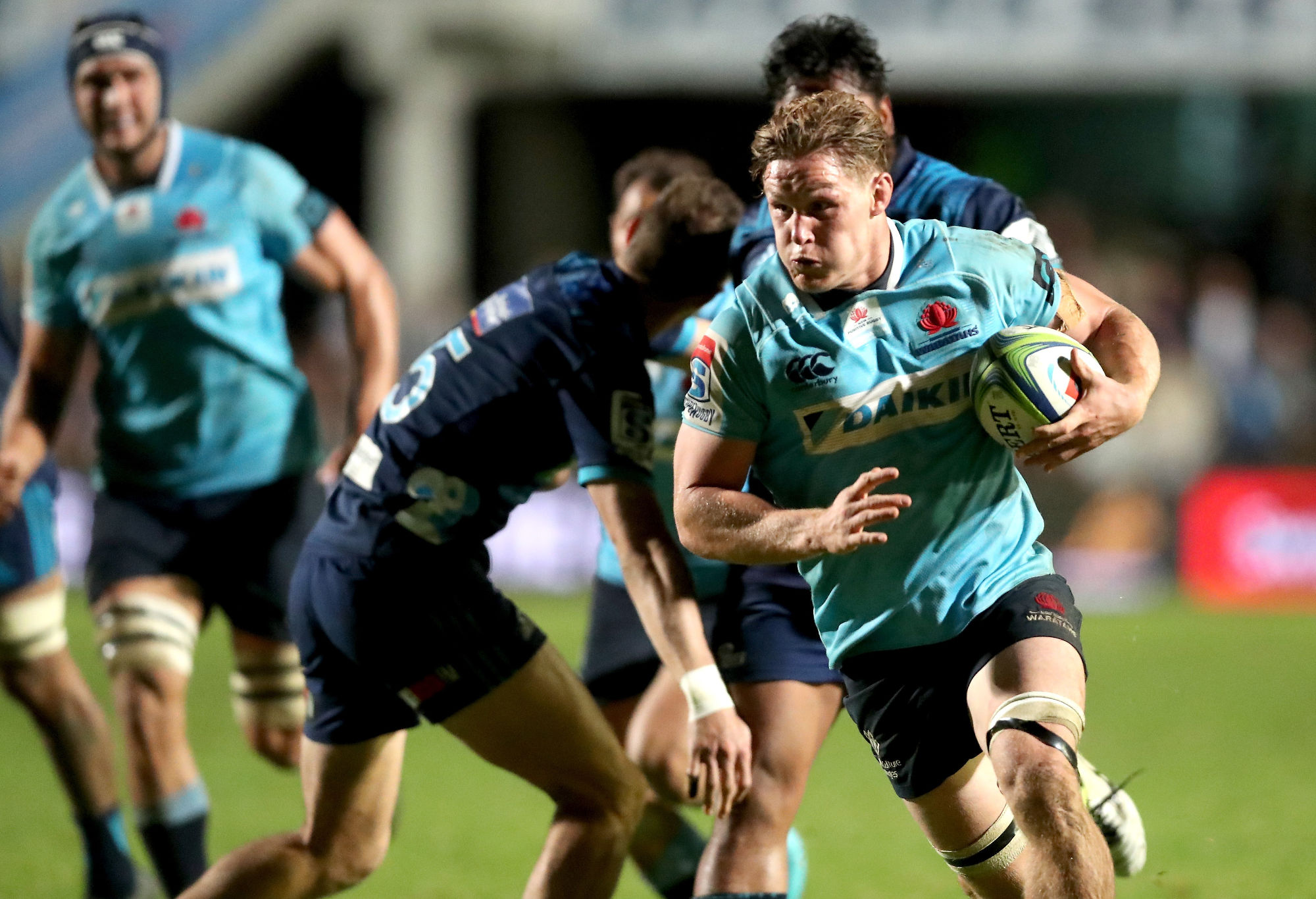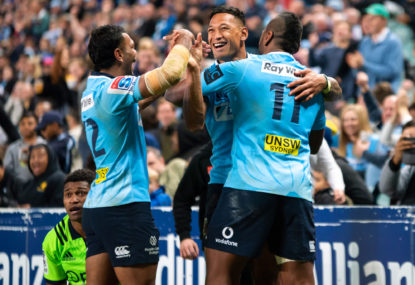Memo to Paul Cully: Australia’s problems with the Super Rugby concept are related to poor results by the four franchises, not the tournament itself.
What needs to be fixed, therefore, are the results. The more matches the Australian teams win, the more competitive they become and the greater the benefits, on and off the field, the Super Rugby tournament will bestow on the local franchises.
Let’s be blunt. The Cully Plan would relegate Australian rugby to a very minor quasi-amateur code, rather like hockey.
The bluntness in confronting the Cully Plan memo is needed because Paul Cully, an influential rugby journalist with a column in the SMH, has called for Australia to pull out of the Super Rugby tournament.
We are all capable of writing absolute nonsense (and readers will no doubt remind me of some of my shockers) but this Cully piece must be one of the most nonsensical rugby columns published in the last decade or so. It could only be written by someone who has no knowledge (it seems to me) of the history of the rugby game in Australia.
Cully’s argument is that Australian viewers are not watching Super Rugby matches at the game or on TV in their homes.
He then insists that “Australia can’t afford” to stay in SANZAAR. Rugby Australia “must regain total control of its own future even to stand a chance of getting out of this mess.”
And how will the mess be cleaned up? Here is the Cully answer: “If Australia goes it alone, it will create winners again. In a ten-team national competition, five sets of fans get to go home every week.”
He suggests that Channel Ten needs content and that Rugby Australia should “shut the door and not open it until we can both do something about it.”
Whew! It’s so easy, it seems, it’s a wonder it hasn’t been done. Just put the hard word on Channel Ten about an all-Australian rugby tournament, with ten teams that don’t exist right now, and rugby in Australia will live happily ever after!
But hold it, what is the National Rugby Championship? And why aren’t the free-to-air television stations breaking down the doors at Rugby Australia’s headquarters to get a piece of the action?
The NRC came into existence in 2014 after the Australian Rugby Championship was abandoned after its first season in 2007 due to financial losses.
The NRC has a five-year deal secured in 2015 until 2020. But in 2016, Rugby Australia did not renew an NRC licence for the Sydney Stars because having four teams in NSW was diluting the player pool too much.
Does Cully believe that a ten-team NRC would generate enough television, sponsorship and spectator revenues to pay for stars like Israel Folau or Michael Hooper to play rugby in Australia?

(Photo by Mark Metcalfe/Getty Images)
The rugby league scouts would have an even greater field day with stealing young and old rugby talent than they had before the Super Rugby tournament was started in 1996.
And here is a nice irony. During the round-robin section of the NRC, teams play for the Horan-Little Shield, a challenge trophy that is played between the holder and a challenger, rather like the New Zealand Ranfurly Shield.
Tim Horan and Jason Little were two of the great Wallabies of their generation who were ‘saved’ from having to convert to rugby league because of their contracts with the new Super Rugby tournament.
Since 1996, the drift of rugby players to rugby league has been stopped and there has been a steady and important flow of talented players from rugby league to rugby as a consequence of the money and lifestyle that the Super Rugby tournament offers.
Incidentally, the Sunday Telegraph ran an interesting little article, ‘Ratings Dive A Concern,’ that challenges one of Cully’s main assertions.
The article pointed out that A-League television rating figures were 18 per cent down on last year. NRL on Channel Nine is down eight per cent. AFL is down by about 12 per cent. But Super Rugby on Fox Sports “is doing best of all … up about three per cent.”
Now, this slight ratings lift has occurred even though the Australian teams have had a horrible 2018 Super Rugby season, so far.
The Australian teams have had 18 wins out of the 44 matches they have played so far this year.
It is a commonplace of sports commentary (but true, nevertheless) that even the most ardent of supporters will lose some of their enthusiasm if their team is a losing spiral.
On the other hand, winning creates finals fever and with this enthusiasm great support. Moreover, if the Super Rugby franchises could learn from the Western Force how to promote their games, their crowds would be bigger and more enthusiastic.

(AAP Image/Craig Golding)
As Paul Cully observed in his article, too, more viewers in Australia (around 50,000) watched the Blues versus Hurricanes match at 5.30pm, a week or so ago, than the 48,000 viewers of the Crusaders versus Waratahs match at 7.30 pm on the same night.
One can presume from this, as Cully did, that it was Waratahs supporters who were turned off from their team.
The brilliant win against the Highlanders on Saturday night at Sydney, even though the Highlanders played for over an hour with 14 men and for ten minutes with 13, should bring viewers back to the ground and to their television screens.
It is a wonder to me that Rugby Australia has not been openly active in pushing the Australian franchises to perform better than they have. What input, for example, is the high performance unit providing to the struggling franchises?
Incidentally, Cully makes another observation about the Super Rugby tournament that actually destroys his case: “Indeed, based on my understanding of Super Rugby pay TV audiences in Britain, there may be more watching Sky Sport UK broadcasts than the Wallabies fans in Australia.”
This is the point about the Super Rugby tournament, it allows rugby in Australia to be part of a worldwide audience. This is its point of difference with rugby league and AFL. They have an essentially provincial reach. Rugby has an international reach.
This international reach means that the Super Rugby concept has huge commercial value, even for Australia where the sport is struggling to be even the third football code.
AFL and rugby league cannot compete commercially, in a global sense, from a Super Rugby tournament that embraces South Africa, Argentina, Japan, New Zealand and Australia.
Add to this the fact that there is a large viewing audience for Super Rugby in the UK, Ireland and throughout Europe.

(AAP Image/Jeremy Ng)
And, just as importantly, the Super Rugby concept has forced the franchises in Australia to lift their game to compete against the different other franchises.
It is no accident that only one country outside of SANZAAR has won a Rugby World Cup, England in 2003.
And in Rugby World Cup 2015, all four semi-finalists, Australia, Argentina, South Africa and New Zealand, were from SANZAAR.
So the hard truth is this. Super Rugby is not the problem for Australian rugby. The terrible record of losses this season is the problem.
There is some consolation over the weekend that although the Reds (to the Hurricanes) and the Brumbies (to the Lions) lost, both sides actually played very well considering some earlier performances and the quality of their opponents.
And the Waratahs, glory be, defeated a resilient Highlanders team to break the 40-game losing hoodoo of Australian sides losing to New Zealand sides.
Next weekend, the Rebels play the Sunwolves at Melbourne. The Waratahs play the Chiefs at Hamilton, with the home side returning from South Africa. The Reds play the Highlanders at Dunedin. And the Brumbies play the Bulls at Pretoria.
All of these games will be difficult for the Australian teams to win. They reflect what a tough tournament Super Rugby is.
But for the Waratahs, Australia’s only real hope of winning the tournament, an away win in New Zealand is a defining challenge going into the finals.
































































































